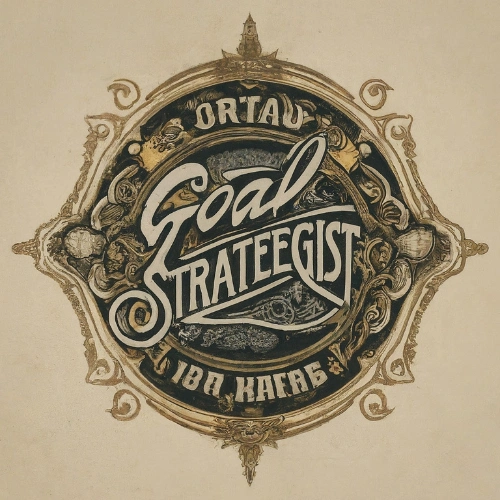Setting unrealistic goals might seem like a fast track to success, but it’s often a recipe for disappointment. You’re ambitious, and that’s great, but when your aspirations aren’t grounded in reality, you’re setting yourself up for a fall.
Chasing these unattainable targets can lead to a cycle of stress and burnout, which is the last thing you need when you’re striving to accomplish something meaningful. It’s crucial to understand the impact that overreaching can have on your overall well-being and productivity.
So, let’s dive into the most likely consequence of setting goals that are a stretch too far. You’ll learn why it’s important to balance ambition with achievability, ensuring that your journey to success is both challenging and rewarding.
The Myth of Fast-Track Success
In today’s hyper-connected world, you’re bombarded with stories of people achieving overnight success. Images of young millionaires and instant fame can skew your perception, making it seem like success is just a viral post away. But here’s the rub: these snapshots rarely paint the full picture.
Behind every “overnight” success is often years of hard work, setbacks, and learning experiences that are conveniently omitted from the narrative. When you set the expectation for fast-track success based on incomplete stories, you’re building your ambitions on a shaky foundation. Let’s unpack why–
Expecting Instant Results Disregards the Value of Growth: Real success, the kind that’s sustainable, comes from gradual progress and learning. It involves honing skills, building relationships, and understanding your industry. By zeroing in on the destination and ignoring the journey, you miss out on these crucial steps.
It Leads to Unrealistic Goal Setting: If your baseline for success is a fairy tale, your goals will reflect that. You might aim too high without the necessary stepping stones, which sets you up for a fall. It’s not just about aiming high; it’s about aiming smart.
The Pressure Can Be Paralyzing: Under the weight of these lofty expectations, you might find yourself hesitating to take risks, fearing failure, or worse yet, burning out trying to keep up with an impossible pace. Sustainable progress requires balance, persistence, and resilience.
Understanding the myth of fast-track success is vital in recalibrating your goals. Success isn’t a sprint; it’s a marathon, with each mile marker representing smaller, achievable goals. Emphasize continual learning and personal development, and remember that what appears to be an overnight sensation is usually anything but.
The Recipe for Disappointment

When you set goals that are beyond your current capabilities or resources, you’re essentially setting the stage for disappointment. It’s like aiming to bake a cake without the necessary ingredients or oven—it simply won’t turn out as you’d hoped. Unrealistic goals can foster a perpetual sense of failure, as you’ll constantly fall short of your lofty expectations.
High failure rates are just about guaranteed when aspirations don’t align with reality. Imagine consistently missing the mark; it’s disheartening and detrimental to your self-esteem. This emotional toll often translates into:
- Decreased motivation
- Lowered self-confidence
- Increased anxiety and stress levels
These emotional outcomes not only impact your personal well-being but also have the potential to derail future endeavors, as your bruised confidence might stop you from pursuing new goals.
Furthermore, setting unrealistic goals can blind you to achievable progress. You might overlook the small successes that are critical stepping stones toward your larger objectives, because they seem insignificant compared to the unattainable standard you’ve set. This lack of recognition for incremental progress can lead to a cycle of negative self-judgment and a reduced ability to acknowledge genuine accomplishments.
In the professional realm, unrealistic goals can result in tangible setbacks. You might find yourself squandering time, money, and effort on projects with little hope for completion. The constant chase for the impossible can prevent you from making strategic decisions that could lead to actual progress and real returns on your investments.
Ultimately, the practice of setting unachievable goals establishes a problematic mindset where the focus is on the end result rather than the journey. This mindset not only hampers your ability to develop and grow but also obscures the value of the process and learning that comes with realistic, incremental advancements. Remember, true progress often lies within the realm of the challenging yet attainable.
The Impact of Unattainable Goals

The allure of setting high-reaching objectives may seem like a fast track to success, but the impact of unattainable goals can ripple through your life in ways that aren’t immediately apparent. Understand the repercussions so you’re not blindsided by the less obvious results of setting the bar too high.
When you set goals that stretch beyond the bounds of reality, your initial motivation often turns into a steep decline in drive once you encounter the inevitable obstacles. This isn’t simply a hiccup in your plans; it’s a fundamental mismatch between your expectations and your capacity. It may lead to a chronic feeling of inadequacy as you grapple with objectives that, quite frankly, may not be right for you at this moment in time.
Moreover, the quality of your work can suffer when you’re persistently racing against an unrealistic benchmark. There’s a fine line between striving for excellence and chasing perfection. On one side of this line lies growth, and on the other lies burnout. It’s important to recognize that perfection is an illusion, a mirage that keeps moving as you approach it.
Let’s consider the psychological toll. Consistently failing to meet your own expectations can erode your mental health, creating a fertile ground for stress and anxiety. Over time, the pressure to perform can hijack your wellbeing, leaving you feeling overwhelmed and powerless.
Finally, the effect on personal and professional relationships shouldn’t be understated. When your time and energy are consumed by striving for the unattainable, personal connections may wane as your focus narrows to your elusive goals. Professional relationships may also take a hit, as collaborators and colleagues could grow weary of a seemingly Sisyphean task trajectory that leaves little room for shared, achievable victories.
Awareness of these impacts is crucial for recalibrating your goal-setting compass. Remember, successful goal management often involves evaluating and adjusting your aspirations to find a balance between challenge and feasibility.
The Cycle of Stress and Burnout
When you set goals that stretch beyond the scope of what’s realistically achievable, you’re not just setting yourself up for disappointment; you’re also entering a vicious cycle of stress and burnout. This relentless cycle begins the moment you commit to an unattainable goal. The pressure to perform mounts and as you struggle to meet these high expectations, stress levels skyrocket.
Over time, chronic stress takes a toll on your body and mind. Despite your best efforts, the gap between your goal and your ability to attain it remains. Each failed attempt eats away at your motivation and energy, leading to an even greater sense of urgency and a deeper plunge into the cycle.
This cycle is characterized by some key stages:
- Initial High Expectations: You might start with a burst of enthusiasm and energy, convinced that you can tackle the goal ahead.
- Increasing Pressure: As deadlines approach without significant progress, the pressure builds.
- Chronic Stress: Sustained high levels of stress can lead to serious health issues, including anxiety and depression.
- Burnout: Finally, you hit a wall. Exhaustion sets in both physically and mentally, making it nearly impossible to find satisfaction in your achievements, let alone pursue further goals.
To prevent this cycle, it’s crucial to recognize the signs early. Frequent feelings of overwhelm, a persistent sense of failure, or deteriorating health are red flags. If these symptoms sound familiar, it might be time to reassess your goals.
By breaking down your overarching aspirations into smaller, more manageable milestones, you can avoid the detrimental impacts of this cycle. With each achievable step, you regain control over your stress levels and reduce the risk of burnout. Remember, it’s not just about reaching the destination but also about enjoying the journey without compromising your well-being.
Balancing Ambition and Achievability

Crafting goals requires a delicate balance between pushing yourself to new heights and anchoring ambitions in reality. The sweet spot lies in the realm of challenging yet attainable objectives. Structured goal setting is a key to balancing ambition and achievability, ensuring you don’t fall into the trap of setting the bar too high, or too low, for that matter.
To start, it’s crucial to account for your resources — time, money, and skills. Evaluate what you currently have, and only then, plot your goals. For example, if you’re looking to advance in your career, consider the skills and experiences required to reach the next level and then map out a realistic timeline to acquire them.
- Assess current skills and resources.
- Outline the steps needed to achieve your goal.
- Establish a realistic timeline.
Another fundamental aspect is tracking progress. Use milestones to measure how far you’ve come and adjust as needed. This practice not only keeps your feet on the ground but also provides a motivational boost each time you tick off a sub-goal from your list.
- Set clear milestones.
- Regularly review and adjust goals.
- Celebrate small wins along the way.
Benchmarking against others can sometimes distort your sense of what’s achievable. It’s important to remember that everyone’s journey is unique. You’re much better off measuring progress against your starting point, not someone else’s middle or end. Keep in mind that setting a pace tailored to your individual circumstances is more sustainable in the long run than trying to match the strides of others.
- Focus on personal progress, not competition.
- Recognize that everyone’s path is different.
Incorporating feedback loops in your goal-setting process can lead to significant improvements. Whether it’s feedback from peers, mentors, or your own reflections, use it constructively to fine-tune your aspirations. This step ensures that you’re not blindly charging forward but are making informed adjustments that increase the likelihood of success.
- Seek feedback regularly.
- Use insights to refine goals.
Remember, the journey toward achieving your goals should be as rewarding as the destination. By aligning your aspirations with your capabilities and context, you’ll not only set yourself up for success but also enjoy the process.
Ensuring a Challenging and Rewarding Journey
Setting yourself up for success involves establishing goals that are challenging yet attainable. Goals that stretch your capabilities but remain grounded in reality foster personal growth and satisfaction. It’s a crucial balancing act – aiming too high could lead to discouragement, while goals that are too easy may not provide the needed sense of achievement.
Craft Goals That Stimulate Growth
When you’re crafting your goals, counterbalance ambition with a clear-eyed assessment of what’s feasible given your current situation – be honest about the resources you have at your disposal. By doing so:
- You align your objectives with your actual bandwidth.
- You set yourself up for incremental progress that’s both realistic and satisfying.
Monitor Progress and Pivot as Needed
Continuous monitoring is key. It’s not enough to set a goal; you must track your journey towards it. Use tools or systems that work for you – whether that’s a simple checklist or a sophisticated app. Adjust your strategy when you encounter roadblocks or when circumstances change to ensure your goals remain relevant and attainable.
Celebrate Milestones, Not Just the Endgame
Celebrating milestones along your journey allows you to experience success and motivation incrementally. Each milestone is a testament to your progress and serves as a stepping-stone to larger achievements. Here’s why it’s important:
- It acknowledges effort and keeps momentum high.
- It breaks the journey into manageable segments.
Incorporate Feedback to Refine Goals
Remember that feedback – whether from peers, mentors, or your own reflections – is invaluable. It can help you:
- Spot areas for improvement.
- Make necessary adjustments that keep your goals challenging yet reachable.
By integrating these practices into your goal-setting process, you’re setting the stage not just for reaching an endpoint, but for enjoying the journey. Embrace the challenge, revel in your progress, and continually look for ways to enrich your trajectory. Keep refining, keep growing, and let your ambitions propel you forward without undermining your journey with unrealistic expectations.
Conclusion
Setting goals that stretch your capabilities is essential for growth but it’s crucial these objectives are within the realm of possibility. Strive for progress, not perfection, and remember that the journey toward your aims is as significant as the destination. By ensuring your goals are realistic, you’ll maintain motivation, avoid burnout, and set yourself up for a succession of achievements that build upon one another. Keep refining your approach and you’ll find that success isn’t just about reaching a destination—it’s about crafting a fulfilling path to get there.


Leave a Reply